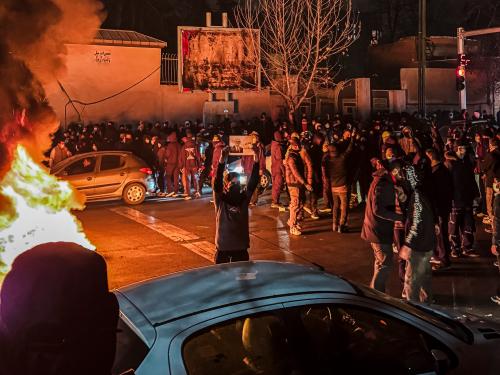Iraqis are increasingly frustrated with the failures of the United States and the previous four governments that sat in Baghdad since the fall of Saddam. They see internecine violence eroding their nation and their lives and if they do not see signs of real progress soon, the trickle who are turning to the militias and the insurgents for security and basic services could become a torrent. Most polls show that while the American people remain committed to the notion that success in Iraq is vital to our national security, they too have increasingly concluded that their government does not have a feasible plan to address the many problems there.
Meanwhile, we finally have a new Iraqi government in Baghdad, with a new prime minister in Nuri al-Maliki who has shown a willingness to embrace the need for far-reaching change, at least rhetorically so far. He has already taken positions that his people want him to take and that anyone who wants to see Iraq stabilized can only cheer, but that both his political allies and rivals oppose. Moreover, in recent months, the Bush Administration and the U.S. military have begun to debate making similarly significant changes in our support to Iraq’s reconstruction. Those arguing for dramatic change within the armed forces and the Administration desperately need the support of the American people and their Representatives in Congress to make the kind of changes that represent what could be our last chance to save Iraq from all-out civil war.
Our critical need right now is to buy ourselves and the Iraqis more time. We cannot possibly solve all of Iraq’s problems in six to twelve months, the best we can do is to lay out a path to do so and start down it. Only very time-consuming programs of training, construction, education and reform can solve Iraq’s underlying problems. Therefore, we must convince Iraqis (and Americans) to give us that time. Iraqis will understandably demand to see material improvements quickly and Washington must respond accordingly. By the same token, because so many Iraqis fear that turning away from reconstruction will mean civil war, there is every reason to believe that if the U.S. and Iraqi governments can demonstrate that they are making major changes, that the changes are the right ones, and that these changes are beginning to produce positive results for the average Iraqi, most will continue to support reconstruction at least for as long as it keeps moving in the right direction.
The Brookings Institution is committed to quality, independence, and impact.
We are supported by a diverse array of funders. In line with our values and policies, each Brookings publication represents the sole views of its author(s).



Commentary
TestimonySaving Iraq
July 11, 2006